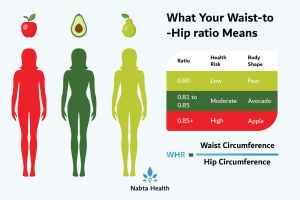What we Know About Ebola so Far

Last week, a 42-year-old Liberian man died from the Ebola virus 10 days after he was admitted to Texas Health Presbyterian Hospital. Now two healthcare workers have tested positive for the deadly virus.
According to the World Health Organization, the Ebola virus has killed more than 4,000 people in West Africa. While Ebola on American soil poses new challenges for public health officials and well-established hospital systems, there are a few key points to remember about this disease.
What are the symptoms of Ebola?
Per the Centers for Disease Control and Prevention (CDC), symptoms of Ebola may appear anywhere from 2-21 days (the incubation period) after exposure to the virus, but the average time is 8-10 days and may include the following symptoms:
- Fever (greater than 38.6°C or 101.5°F)
- Severe headache
- Muscle pain
- Vomiting
- Diarrhea
- Stomach pain
- Unexplained bleeding or bruising
How does someone contract Ebola?
Ebola is spread through direct contact with a symptomatic person’s blood and body fluids (like urine, feces, saliva, vomit, sweat, and semen) or objects (like needles) that have been contaminated with the blood or body fluids of a person sick with Ebola. This is why healthcare workers must follow strict protocols to avoid contaminating themselves when removing protective gear while attending to affected patients. The virus is not spread through the air, water, or food.
Who is most at risk?
Doctors and hospitals are increasing their vigilance toward Ebola by asking more thorough questions about travel, especially if a patient is known to have any connection to West Africa. More common illnesses like viral gastroenteritis (“the stomach bug”) or seasonal influenza (“the flu”) are much more likely to be causing most of the symptoms of Ebola.
What can be done to prevent Ebola?
Although the risk of Ebola spreading (like it has in West Africa) in the United States is very low, there are still some hygiene practices you should know:
- Wash your hands often with soap and water, or use an alcohol-based hand sanitizer.
- Don’t touch the blood or body fluids (like urine, feces, saliva, vomit, sweat, and semen) of people who are sick.
- Don’t handle items that may have come in contact with a sick person’s blood or body fluids, like clothes, bedding, needles, or medical equipment.
- Don’t touch the body of someone who has died of Ebola.
As of October 15, 2014, two people in the United States have contracted the virus from within the US. There likely will be others, but protocols are in place to prevent the spread of the disease as we have seen in West Africa.
Sources:
- World Health Organization
- Facts of the Ebola outbreak response.
Centers for Disease Control and Prevention - Signs and Symptoms.
Centers for Disease Control and Prevention - Prevention.
Powered by Bundoo®










